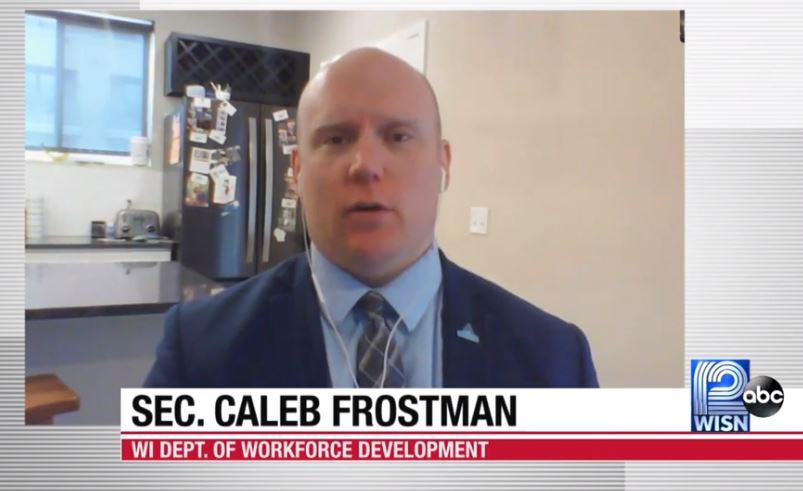Tens of thousands of claims for unemployment benefits are being filed daily due to layoffs in the coronavirus shutdown, and the Department of Workforce Development has made adjustments to handle the increased volume, DWD Secretary Caleb Frostman said.
“We’ve been making some pretty serious improvements and innovations to make sure we are able to handle the call capacity,” Frostman said in an interview aired Sunday on “UpFront,” produced in partnership with WisPolitics.com.
Frostman said the call volume is “immense.” He said 19,000 calls came in during a 15-minute period last Monday morning.
DWD is advising people to file initial claims online.
>> WisPolitics is now on the State Affairs network. Get custom keyword notifications, bill tracking and all WisPolitics content. Get the app or access via desktop.
Frostman said 21,000 initial claims were filed last Monday, followed by an average of 19,000 claims daily on Tuesday, Wednesday and Thursday.
“Perhaps we’ve leveled off, but that sustained amount of new initial claims is still a serious amount of folks filing for unemployment,” he said.
Also on the program, an economist said it’s a “reasonable assessment” that the U.S. is already in a recession because of the pandemic.
Brian Jacobsen, chief portfolio strategist for Wells Fargo Funds Management, said available data and indexes indicate that “not just the U.S., but globally, we’re in a recession.”
“Now what we’re trying to figure out is what that recovery and rebound is going to look like,” Jacobsen said.
“We believe that we are through most of the worst of it, but obviously, facts can change,” he said.
In another segment, the creator of the popular “Wisconsin Foodie” television series said he fears the pandemic, and the economic shock it has caused, will wipe out a sizable number of Wisconsin restaurants.
Arthur Ircink said the Wisconsin Restaurant Association told him that in the first 22 days of the crisis, the industry lost $288 million in sales as restaurants were forced to close their doors or offer take-out service only. Ircink said the service industry has laid off 56,000 employees in Wisconsin.
“We’re looking at about 13,000 drinking and eating establishments in Wisconsin, and I’d be shocked if 70 percent of those come back,” Ircink said.
See more from the program:
http://www.wisn.com/upfront

